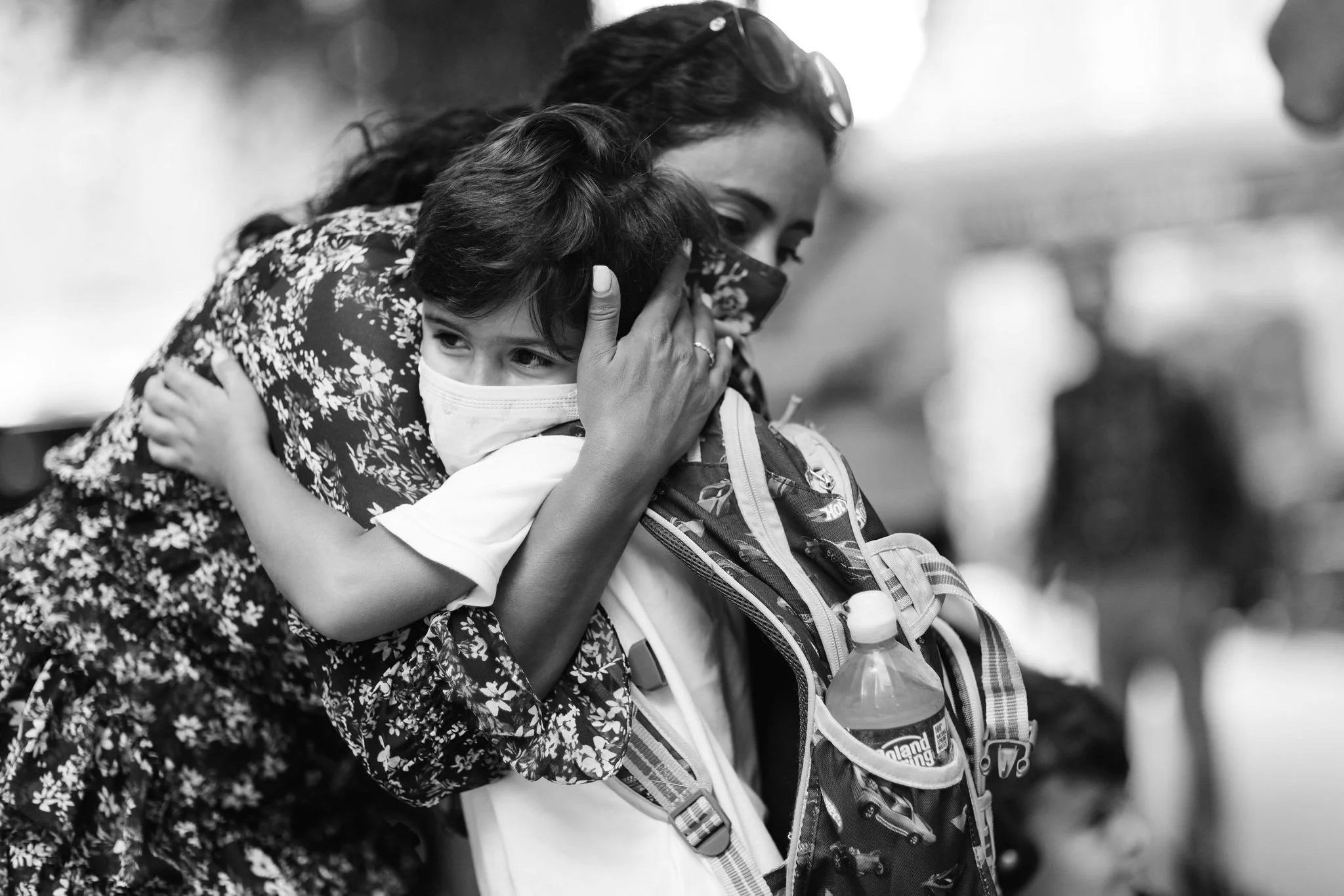Navigating Complex Times with our Children
It would be a mistake, I think, to suppose that today’s headlines are direr than they’ve been in our nation’s history; indeed, past moments of economic dislocation, civil unrest and violence, political polarization, and global conflict have been significant and enduring. But keeping that perspective doesn’t automatically deliver us from the stress of current phenomena. After all, the COVID-19 pandemic is about to eclipse its second anniversary in the United States. We get seemingly weekly reminders that our weather is setting all the wrong kinds of records. Tensions on the Russia-Ukraine border feel like the driest of tinder, with matchbooks nearby. Congress presently has a popular approval rate of 20 percent and falling. Our healthcare system is again strained to the point of breaking. We don’t have Sidney Poitier and Betty White and Meat Loaf with us any longer. To be sure, neither the international nor national scenes have been shy about laying rough news on our doorstep.
And, of course, parenting under such circumstances is a considerable challenge. Raising healthy kids has never been a simple proposition, but dealing with public health requirements, the potential toxicity of social media, and worries about the environmental and political climate our young ones will inherit can make all of us feel ineffectual and frustrated. Pair our worries with insistent statistical realities—during the pandemic, there have been dramatic increases in emergency room visits for mental health difficulties and heightened rates of anxiety and depression among children—and we could be forgiven for concluding that this may not be the best time to be a kid.
As a parent, I have surely felt this way. I also think, however paradoxically, that those of us who are parents also have a moment of real opportunity before us: an opportunity for us to teach, and for our children to learn. While we all would prefer a world that was lighter on stress and worry, how we deal with our own inescapable strains and anxieties—be they about inflation, inequity and hatred, mask-wearing, subway travel, the coming election cycle, what have you—can go a long way toward helping our kids makes sense of their own uncertain world. Daniel Heischman, author of Good Influence: Teaching the Wisdom of Adulthood, notes that children are adept at “the art of studying adults,” and that their studies are perhaps richest when observing how their parents “make sense of, react to, and ultimately learn from” their own frustrations, disappointments, and disagreements. We may rue the kind of world that brings us so many occasions for negotiating challenge, but those occasions are also incredibly fruitful chances for us to show our young ones how we find meaning in our discontent, how we build resilience from our setbacks, how we cultivate the needed “grytte” for a world that is not yet as ideal as we may hope to make it. It’s not a matter of establishing ourselves as objects of study for our kids—we already are, whether we like it or not. It’s a matter of what we want our children to learn when they see us encounter a world that does not provide ready or welcome answers.
This is absolutely not an assertion that parents alone can solve a national mental health crisis, or to suggest that a little bit of positive thinking alone is going to bring clarity to a complex world. Such outlooks are insultingly naive, and neglect the role that institutions and structures play in creating wellness for all of us. Getting through complicated times requires that our children have interpersonal connection, trained counselors and professionals when support is needed, and the required knowledge, skill, and confidence to help shape their world for the better. These are vital jobs of schools, and they are jobs that Browning always embraces for the sake of its boys.
And still, we should neither neglect nor dismiss the efficacy of a parent regularly sitting with their child, no matter their age, and talking through (in developmentally appropriate ways) the specific or generalized episodes of stress and pressure and worry that we all feel. Desired or not, our times are giving us all plenty of occasions to show our kids how we deal with political, ecological, social, and epidemiological setbacks and disagreements, and when we can enlist our young ones in conversation about hopes and fears—our own, and our children’s—and the ways in which encounter them, we provide an essential supplement to the institutions and structures meant to serve the mental wellbeing of children. To paraphrase the esteemed psychologist and Browning visitor Rob Evans, we may not be able to prepare the road for our kids, but we can steadily prepare our kids for the road by both emphasizing our common feelings of disappointment and distress, and modeling how we build resilience from those feelings, all in the name of pursuing and finding lives of enduring meaning and purpose.

